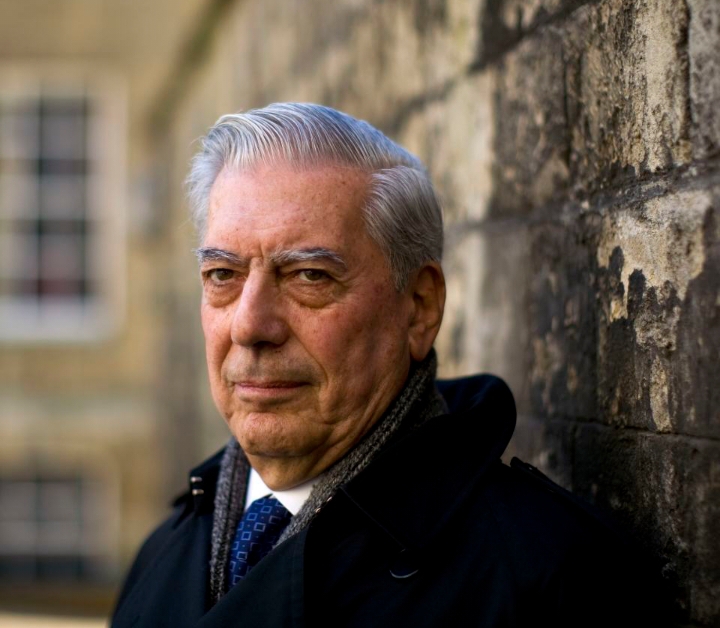Peruvian literary giant and Nobel Prize-winning author, Mario Vargas Llosa, has died at the age of 89, his family confirmed on Sunday.
The acclaimed novelist passed away peacefully in Lima, surrounded by his loved ones.
“It is with deep sorrow that we announce that our father, Mario Vargas Llosa, passed away peacefully in Lima today, surrounded by his family,” read a statement shared by his son, Álvaro Vargas Llosa, on X.
Vargas Llosa was renowned for his literary exploration of authoritarianism and power, leaving an enduring legacy through works that shaped Latin American literature across the 20th and 21st centuries. His novels, characterized by sharp social critique and vivid storytelling, include Conversation in the Cathedral (1969), The War of the End of the World (1981), and Aunt Julia and the Scriptwriter (1977), the latter of which inspired the 1990 film Tune in Tomorrow, starring Barbara Hershey and Keanu Reeves.
Awarded the Nobel Prize in Literature in 2010, the Swedish Academy praised him “for his cartography of structures of power and his trenchant images of the individual’s resistance, revolt, and defeat.” He also received numerous other accolades, including the Rómulo Gallegos Prize (1967), the Prince of Asturias Award (1986), the Miguel de Cervantes Prize (1994), the Jerusalem Prize (1995), the Carlos Fuentes International Prize (2012), and the Pablo Neruda Order of Artistic and Cultural Merit (2018).
In their tribute, his children said, “His departure will sadden his relatives, his friends and his readers around the world. But we hope that they will find comfort, as we do, in the fact that he enjoyed a long, adventurous and fruitful life, and leaves behind him a body of work that will outlive him.”
The family announced that a private farewell would be held for close relatives and friends.
Peru’s President Dina Ercilia Boluarte Zegarra also paid tribute, calling him an “illustrious Peruvian of all time.” The country’s presidential office stated, “His intellectual genius and vast body of work will remain an everlasting legacy for future generations. We express our deepest condolences to his family, friends, and the world of literature.”
Born on March 3, 1936, in Arequipa, southern Peru, Vargas Llosa spent part of his childhood in Bolivia before returning to Peru. He attended a military school in Lima and later studied at the National University of San Marcos. His literary journey began in 1952 with the play La huida del Inca, followed by contributions to the Peruvian literary press.
He later moved to Europe, studying at the University of Madrid and living in Paris. His debut novel, La ciudad y los perros (The Time of the Hero), published in 1963, received international acclaim and was translated into over a dozen languages. Subsequent works such as The Green House (1966) and Captain Pantoja and the Special Service (1973) solidified his reputation as a master storyteller.
Beyond literature, Vargas Llosa ventured into politics, running for the presidency of Peru in 1990 on a platform of classical liberalism. After losing in a runoff to Alberto Fujimori, he relocated to Spain and became a Spanish citizen in 1993.
His later novels, including The Feast of the Goat (2000) and The Bad Girl (2006), continued to garner critical acclaim. Reflecting on his inspirations in a 2010 Nobel Prize interview, he cited French author Gustave Flaubert, saying, “Because he managed, not being a born genius, to build his genius through effort, commitment, perseverance, discipline.”
Vargas Llosa also emphasized the role of literature in shaping democratic values. “I am convinced that… democratic culture… was something that was possible because we had people that were sensibilized by art, by literature, by culture in general, about the sufferance, the injustices, the inequalities, the abuses who were so extended in real life,” he said. “So, I think literature is pleasure but it’s also a very important instrument to move forward in life.”
Among his memorable reflections is the quote: “Memory is a snare, pure and simple; it alters, it subtly rearranges the past to fit the present.”
His passing marks the end of a literary era, but his voice and ideas will continue to resonate across generations.











